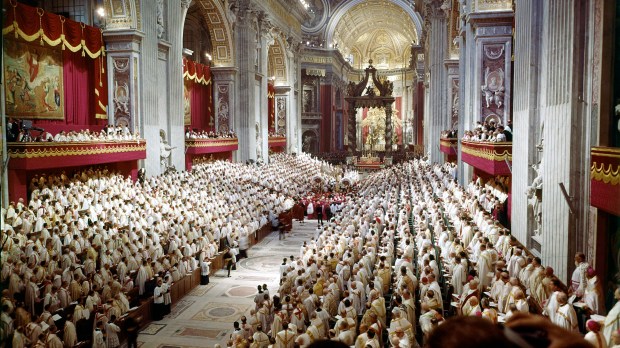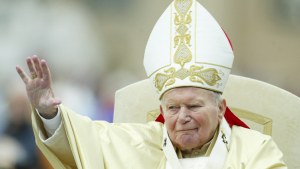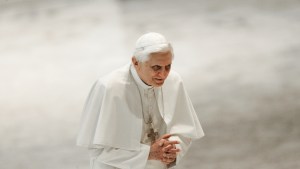Almost 60 years after the close of the Second Vatican Council, only four of the nearly 2,500 bishops who took part are still alive, reports the German newspaper Katholisch.de.
In 1959, Pope John XXIII announced his intention to convene a council for the universal Church, bringing together all the world’s Catholic bishops and superiors of religious orders. Less than three years later, on October 11, 1962, a long procession of conciliar fathers went from St. Peter’s Square to the basilica.
The Council would last until 1965, bringing about major transformations within the Catholic Church and in its relationship with the world. Almost 60 years later, the number of living council fathers has naturally dwindled, even as Vatican II continues to unfold in the Catholic Church.
On July 10, Archbishop Emeritus Alphonsus Mathias of Bangalore (India) passed away at the age of 96. Ordained bishop in February 1964 at the age of 35, he took part in the third session of the Council in 1964, as well as the fourth in 1965.
Last year, the last European council father died on the eve of his 100th birthday. He was Luigi Bettazzi, bishop emeritus of the Italian diocese of Ivrea and president of the international Pax Christi movement.
The living council fathers
Of the four living council fathers, the oldest is Bishop José de Jesús Sahagún. This Mexican bishop, ordained to the priesthood in 1946, turned 102 on January 1. Bishop emeritus of Ciudad Lázaro Cárdenas, a diocese on Mexico’s west coast, he’s now the world’s oldest and only living bishop appointed by Pope John XXIII. That was in 1961, when he was 39 years old.
Next in line is Bishop Daniel Alphonse Omer Verstraete, who celebrates his centenary on July 31. In 1965, this Belgian-born missionary was appointed Prefect Apostolic of Western Transvaal, a territory in South Africa which was erected as a diocese in 1978, and of which he became bishop. This missionary of the Oblates of Mary Immaculate (OMI) was able to take part in the fourth and final session in Rome, from September to December 1965.
Archbishop Victorinus Youn Kong-hi, also almost 100, is another of the last living bishops to have taken part in the Second Vatican Council. Appointed bishop of Suwon, South Korea, in 1963, then of Gwangju from 1973 to 2000, the Korean took part in three of the Council’s four sessions. Around 13% of the council fathers came from Asia.

Finally, there’s Nigerian Cardinal Francis Arinze. An influential voice of the Church in Africa, the prelate, who will celebrate his 92nd birthday in November, headed the Congregation for Divine Worship and the Discipline of the Sacraments in Rome from 2002 to 2008. Ordained bishop in August 1965, he was able to take part in the last session of the Council as a conciliar father. At one time considered by the media as a possible successor to Pope John Paul II, Cardinal Arinze remains a key figure among African cardinals.



